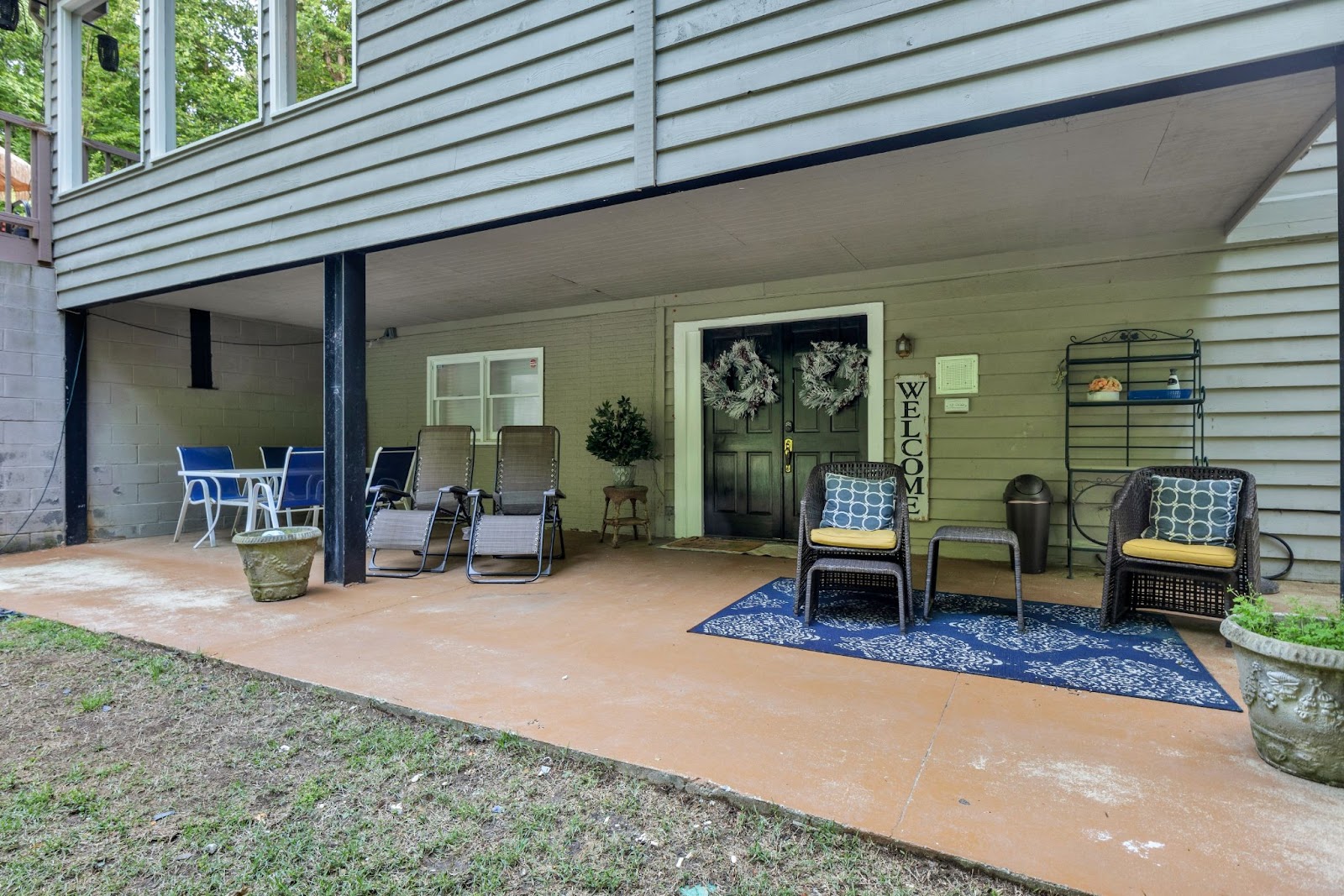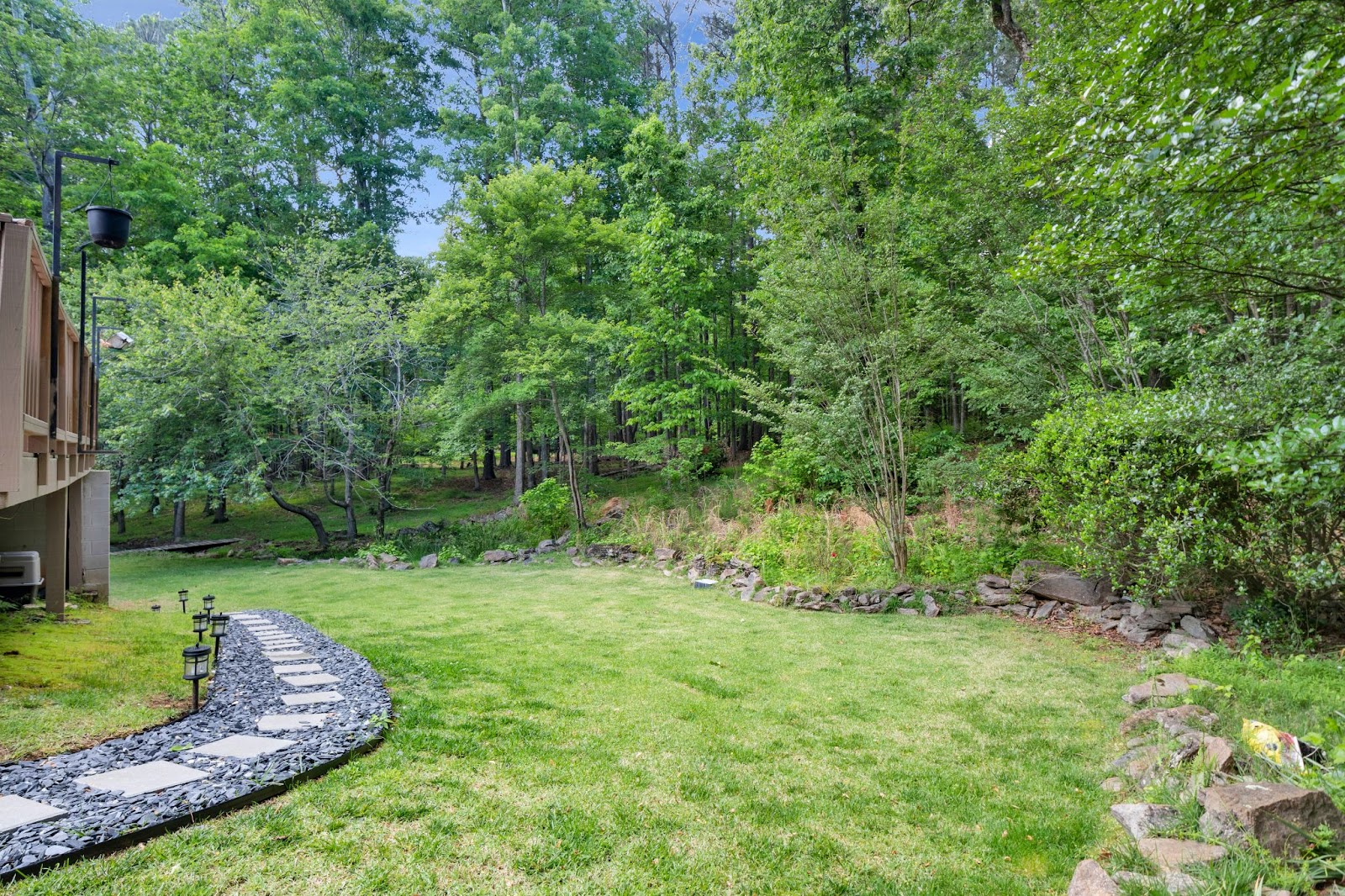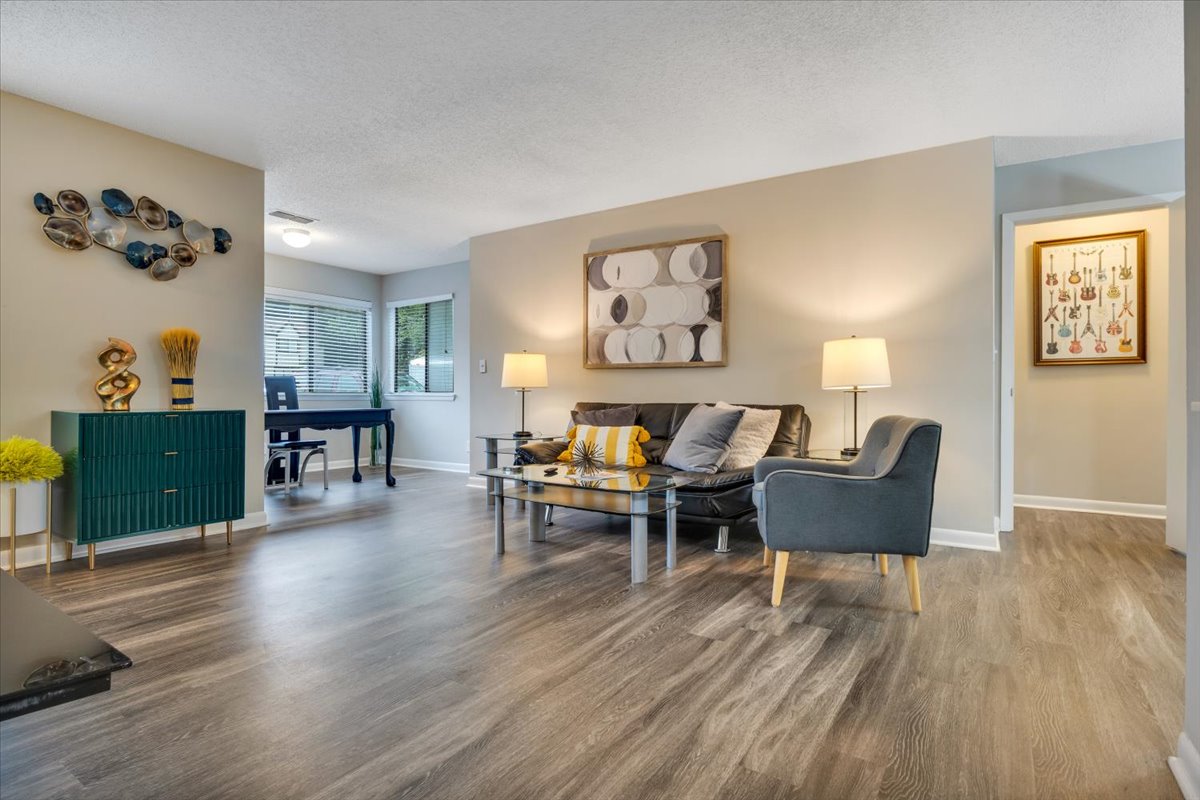What is Rental Property Depreciation?

This is a topic I hear a lot of short-term rental investors ask about. Although you might have an idea of what rental property depreciation is, it can be hard to fully master the ins and outs. Truth be told, rental property depreciation can get a little complicated. But if used correctly, is a great way to cut down those dreaded tax bills!
With my signature program, the Luxury Short-Term Rental Academy, you'll learn everything you need to know when it comes to investing in short-term rentals, generating sky-high ROI and unlocking that full-freedom lifestyle you crave.
Say goodbye to crushing debt, ridiculously long hours, and moonlight shifts once and for all.
Hey Rental Property Owners, Don't Sweat Property Depreciation!
Seriously. Don't be stressed about depreciation, deductions, or any other step of the rental investment process - tax-related or not. I'm here to walk rental property owners just like you through it all. Worried about taxable income? Thinking about things like your property's cost basis, real estate taxes, and the land value of your residential property?
No matter where real estate investors or rental property owners are in their understanding, I'm here to help. Let's break down the depreciation deduction so that you can confidently and successfully depreciate rental property in 2023 and beyond.
First, we'll cover the top reasons real estate investors should use property depreciation.
3 Main Reasons You Should Depreciate Your Investment Property
Depreciation is arguably the most popular deduction for rental real estate investors. As a property investor, you want to maximize your investment. Whether your venture is entirely passive or you're rolling up your sleeves daily, you deserve to know your taxable rental income is not going to waste.
As long as you're following the Internal Revenue Service (IRS) code, you can be rewarded for doing things right. There are many loopholes, caveats, and exemptions that apply.
Investors take the depreciation deduction for three primary reasons.
1. Reduces The Taxable Income from Your Residential Rental Property
Less taxable income is always a good thing! Your cash flow stays the same, but the amount you pay to Uncle Sam goes down. When you claim depreciation, you are deducting purchase and improvement costs from your taxes, year by year, for the "useful life" of your property.
Because you can only take depreciation tax deductions on buildings and not land, many real estate investors operate by the 80/20 rule. That is, you allocate 20% of the cost basis to land and 80% to the building. The cost basis is generally the original property value or the purchase price with some other calculations.
2. The "Useful Life" of a Rental Property is 27.5 Years
If you know your cost basis, which is generally the purchase price, and a few other calculations, you can figure out your depreciation amount. For tax purposes, a typical residential rental property has a "useful life" of 27.5 years, depreciated at a rate of 3.636% annually. A nonresidential real property has a useful life of 39 years.

Calculating How Much Depreciation You Take
Let's say your cost basis is $300,000. That would get you: $300,000 ÷ 27.5 = $10,909. In other words, your property depreciation would be at an annual rate of around $10,909 for its useful life. This is called the annual depreciation expense.
You must report your annual depreciation expense like you would any other normal business expense.
And what exactly is a useful life, you ask? Simple. It's the number of years your rental property is projected to remain in service for income-producing activity (i.e., rental income).
Your annual depreciation amount can vary widely based on a property-by-property basis.
3. Property Depreciation Gives You More Money, Options, and Freedom!
Now obviously, depreciation does not affect cash flow. But just think of the money you save on your taxable income when you depreciate your investment property. This means you can take that saved cash and do whatever you want with it.
You can reinvest in other rental properties, diversifying your portfolio. You can take care of a pesky debt or capital expense. You can hit the beach, or mountain retreat, for some much-needed R&R...
Whatever you do with the money saved from annual depreciation is up to you! So, what are you waiting for? Don't pay taxes you don't need to! Depreciating an income-producing property is a no-brainer.
Just be sure to consult a tax advisor or top rental property expert to best reduce your tax liability and maximize your tax benefit.
Getting Ready to Depreciate Investment Property - What You NEED to Know
We'll get into how to calculate depreciation, cost basis, and all those good things in a little bit. But first, you need to know if you're eligible to start depreciating your rental property. Whether you have one investment property or enough rental properties to fill the block, you must meet certain conditions before you begin property depreciation.
Rental property depreciation can begin as soon as the property is 'in service,' or ready to generate income. You don't need to have tenants at the time. If you found tenants, you can begin depreciating the month the rental property is ready to be leased, even if the tenants' lease won't start for a few months later.
How You Ensure Your Property Can Be Depreciated
From income taxes to property taxes, interest expenses, rental expenses, transfer taxes, and everything else, there are many tax considerations when you go to file. Depreciation is no different, and you must have a sound grasp of not just when and how you can claim depreciation for real estate, but if you are allowed to in the first place.
The IRS clearly defines the following requirements for depreciating real estate.
- You are the rightful owner of the property.
- Your property is utilized for income-producing activities.
- Your property has a determinable "useful life" and will deteriorate and lose value over time.
- You expect your property to last over a year.
Just remember, the term real estate incorporates both buildings and land. However, because the IRS does not view land as having a useful life, the land is not depreciable. This means you cannot depreciate activities such as landscaping. In other words, focus on the building first, not the land!

In some cases, you may have to stop depreciating the building even if the useful life of the building has a waaays to go.
When Does Rental Property Depreciation End?
Unfortunately, all good things must come to an end. In many cases, you may not reach the end of the useful life of the rental property before depreciation ends. If your residential rental property has been 'retired' from service, its depreciation ends.
There are many reasons a residential rental property is no longer in service.
Top Reasons Rental Property Depreciation Ends Prematurely
- You stop using the rental property for income-producing activities.
- You sell the rental property or exchange it.
- You repurpose the rental property for personal use.
- You abandon the rental property (i.e., neglected or inactive for years).
- Your rental property is destroyed or irreparably damaged.
If none of this happens, you can continue deducting until you've deducted the full cost basis of your rental property. However, you cannot depreciate your property if you put it in service and then take it out of service the same year.
In certain cases, you can temporarily remove the rental property from service - say, to repair it - and still enjoy depreciation tax deductions.
Now that you know when you can and can't claim a depreciation tax deduction, let's get into the details of calculating real estate depreciation.
Depreciation for Rental Property Owners Made Easy
As a real estate investor, you have a little homework to do before you start depreciating. Not a fan of number-crunching? It's okay. Whether you're pouring through rental property depreciation FAQs or hiring somebody to handle all of it for you, calculating depreciation doesn't have to be a nagging headache.
Put the wine away, for now. We'll break down everything you need to know about how to calculate depreciation on rental property.

How Is Rental Property Depreciation Calculated? A Breakdown
Three terms. Remember these three terms, as they are the fundamentals of property depreciation. When depreciating, you need to know the cost basis, the recovery period, and the method.
Firstly, let's assume you will be adopting the standard 27.5-year useful life model. This is called the Modified Accelerated Cost Recovery System (MACRS). If your property was put into service after 1986, you use this approach. This depreciation model will spread costs and deductions across the 27.5-year recovery period.
The GDS Vs. ADS Depreciation Systems
In most cases, your depreciation method within the MACRS will be what is known as the General Depreciation System (GDS) method. The other system, the Alternative Depreciation System (ADS), is reserved for properties that are only half-used for business, used mostly in farming, used tax-exempt, and financed by tax-exempt bonds.
The recovery period for ADS properties is either 30 or 40 years, but the recovery period for GDS properties is always 27.5 years.
Now that you know the method of calculation and the recovery period, let's dive into figuring out the cost basis and the adjusted cost basis, if necessary.
As always, consult a rental property tax specialist first.
Understanding Your Property's Cost Basis
Some people like cash. Some people like credit. Some people take out massive mortgages, and some are a little more cautious. This amount you paid for the property is the cost basis. Pretty simple? Well, it gets a little more complicated...
See, the cost basis will include other expenses required to acquire the property.
These cost-basis expenses may include certain:
- Recording Fees
- Transfer Taxes
- Title Insurance
- Closing Costs
- Settlement Fees
- Legal Fees
- Other Agreed-Upon Payments
The following closing costs and fees are not included:
- Mortgage Insurance Premiums
- Fire Insurance Premiums
- Credit Report Fees
- Appraisal Fees
- Points, and more
Contact a professional to help you with any questions or concerns related to your cost basis, closing costs, and fees.

Dividing Land and Building Costs
A critical aspect of calculating your rental property depreciation is the value of your property. Think of your property simply: land and building. The land cannot be depreciated but the building can.
Calculating these values is pretty straightforward.
Take the fair market value for both the land and building when you purchased them. If you can't find the building or land value at that time, you can always use the latest assessed real estate tax value.
If you purchased a property for $300,000, the latest assessed value may put it at $250,00. Going off that, the land may be valued at $40,000 and the building at $210,000. You can then allocate 84% ($210,000 ÷ $250,000) of the purchase price to the building and 16% ($40,000 ÷ $250,000) to the land.
As always, make sure you reach out to a top rental property specialist to help you calculate depreciation.
Calculating the Building's Cost Basis
This calculation is quite easy. Since you already know the cost basis for the overall property and the value of the building alone, you can now calculate the basis of the rental building. Just to clarify, the basis of the rental building is different from the value of the rental building.
How much you can depreciate in the building depends on its basis. Firstly, take the fair market value at the time of your purchase from above ($300,000). Now, allocate the 84% from above (.84 x $300,000) for the building, and the 16% (.16 x $300,000) for the land.
Your basis for the building would be $252,000, and your basis for the land would be $48,000.
Although this would normally end your depreciation expense calculations, sometimes things go sideways. Life throws curveballs, and with those looping surprises, another depreciation expense may come your way. Which leads us to...
Calculating Your Adjusted Cost Basis
Again, this is not always necessary but sometimes you have to do what you have to do (such is life). If you need to determine your adjusted basis, it's likely due to changes in the property between the date you purchased it and the date you put it in service.
If you make capital improvements to the property, repair the property, introduce utility services to the property, or spend money on legal services for the property, the cost basis will increase. Other factors such as theft, personal property loss, and damage will decrease the basis.

Reach out to a specialist in residential rental property depreciation with any questions or concerns.
One of these concerns may be depreciation recapture...
What Is Depreciation Recapture and How Does It Work?
As you make and finalize your depreciation calculations, it's important to be aware of one downside of the process (cue the music). I'm talking about our good ol' friend, Mr. Depreciation Recapture.
What's depreciation recapture, you ask? Depreciation recapture is the gain from the sale of depreciable capital property required to be reported on tax forms as ordinary income.
I know, I know, that's a little technical. In a nutshell, depreciation recapture is when the IRS is repaid through income tax on the profitable sale of a depreciated property. In other words, you cannot depreciate your property, sell it for profit, and not pay Uncle Sam the depreciation recapture tax.
Wondering how to avoid depreciation recapture? You can always use what is called a 1031 exchange, which can also allow you to defer capital gains taxes.
Under a 1031 exchange, you essentially swap properties. Just make sure you use the sale proceeds from one property to invest in the next property. If you don't, you may be unable to avoid both capital gains tax and depreciation recapture.

So, What Are You Waiting For? It's Time to Start Depreciating!
Make the most of your money and beat the taxman at his own game. If you're a rental property investor, you owe it to yourself and those in your care to reduce your taxable income. Don't let a lifestyle of erratic work hours, long nights, heavy debt, and mounting stress become the norm.
Luxury short-term rental investment can make it all go away.
Concerned about depreciation deductions? Property management fees? An interest expense?
Don't let worries prevent you from an incredible lifestyle.
Shoot me a message today and I'll open your eyes (and mind) to a world of potential. You deserve the freedom and financial security you've always wanted. Let's get it together.
Are You Ready To Dive In?
Dare to discover the life that awaits beyond the Luxury Short Term Rental Academy doors.
Let's Get Started